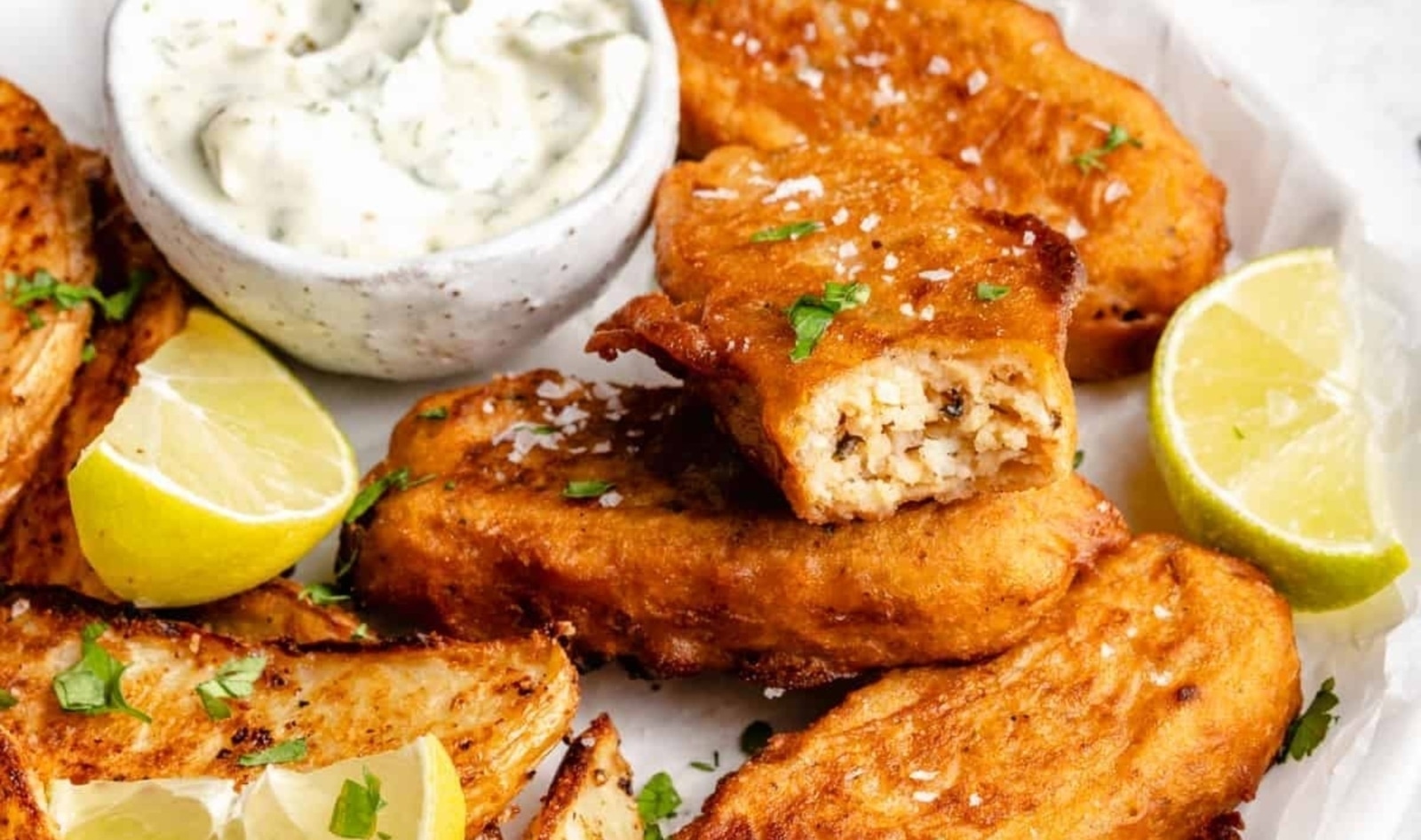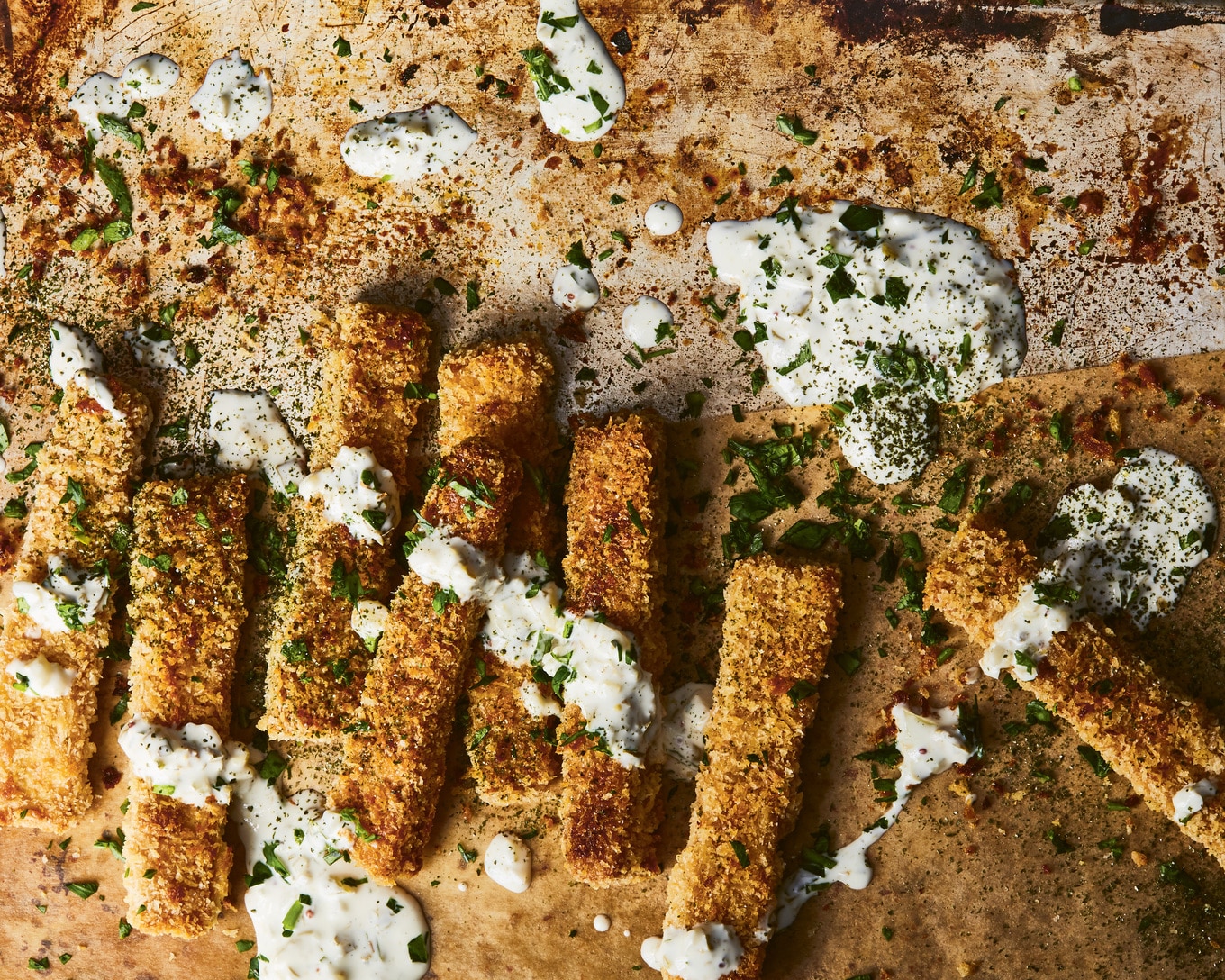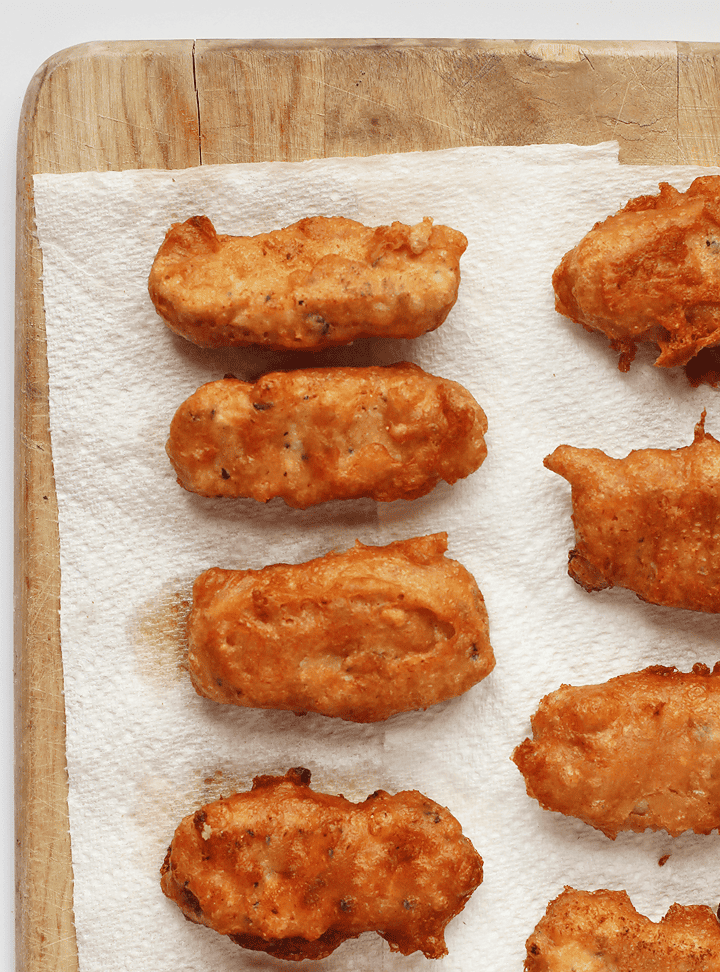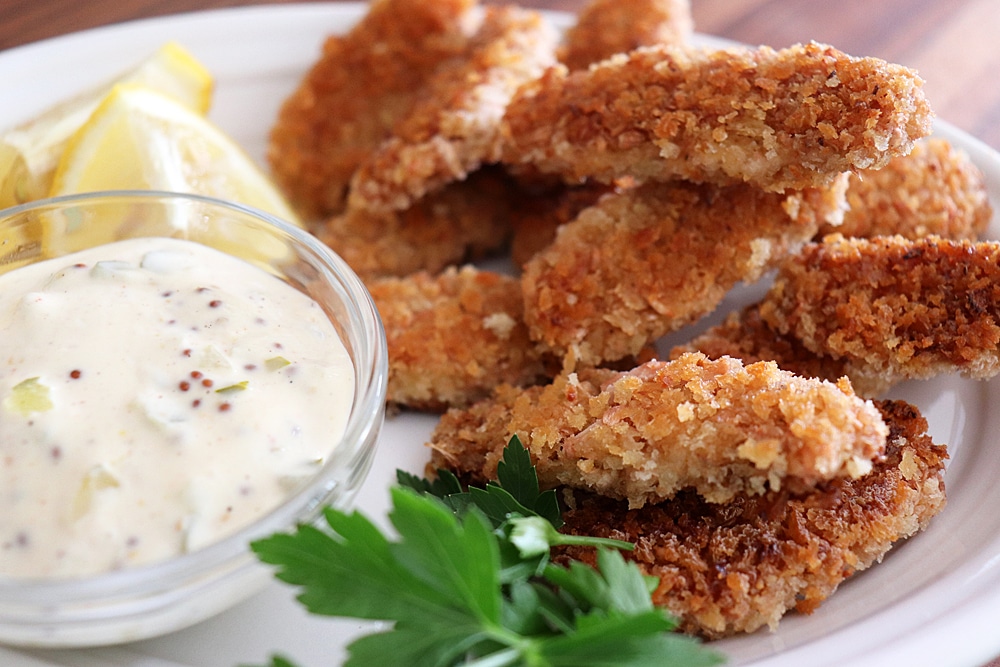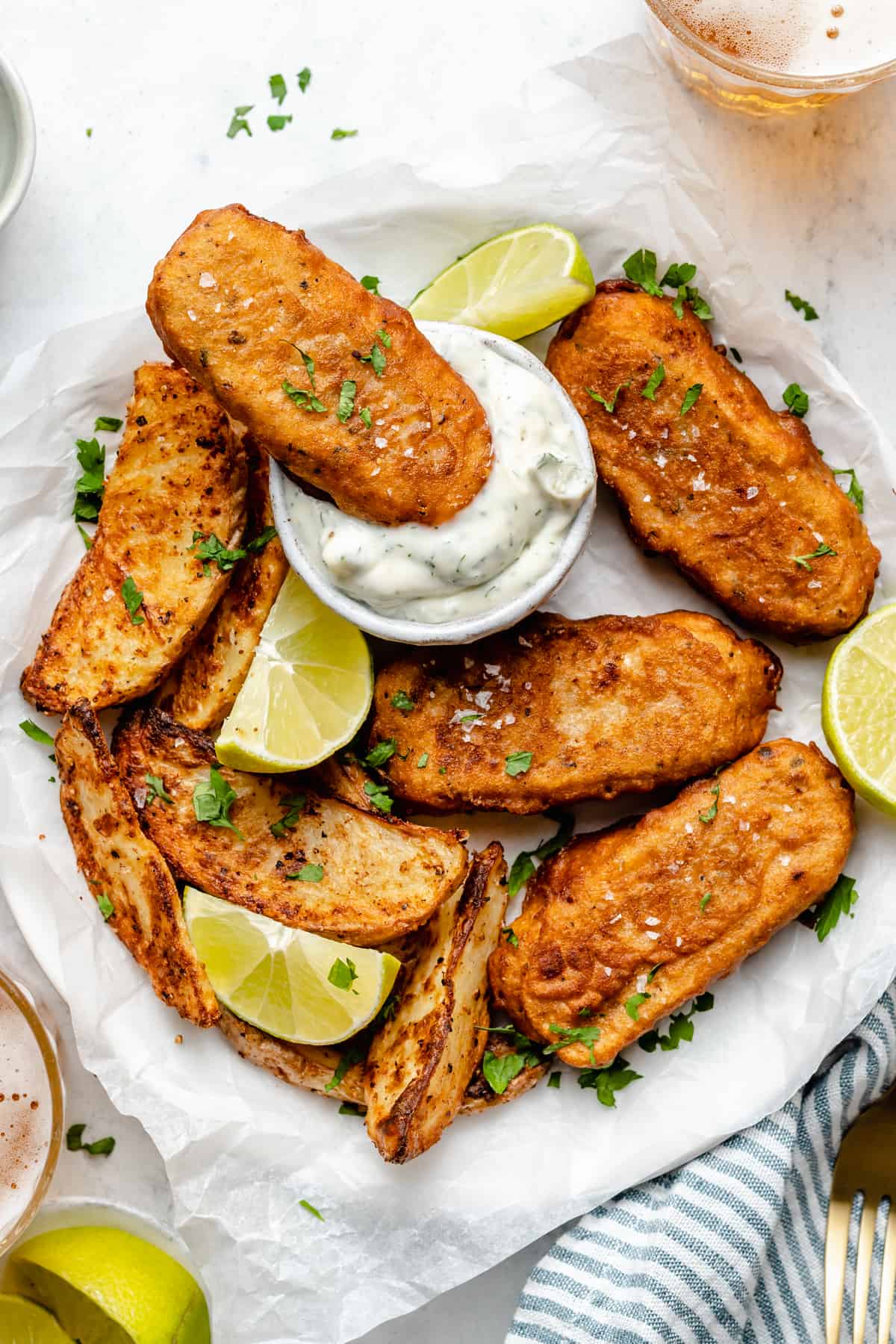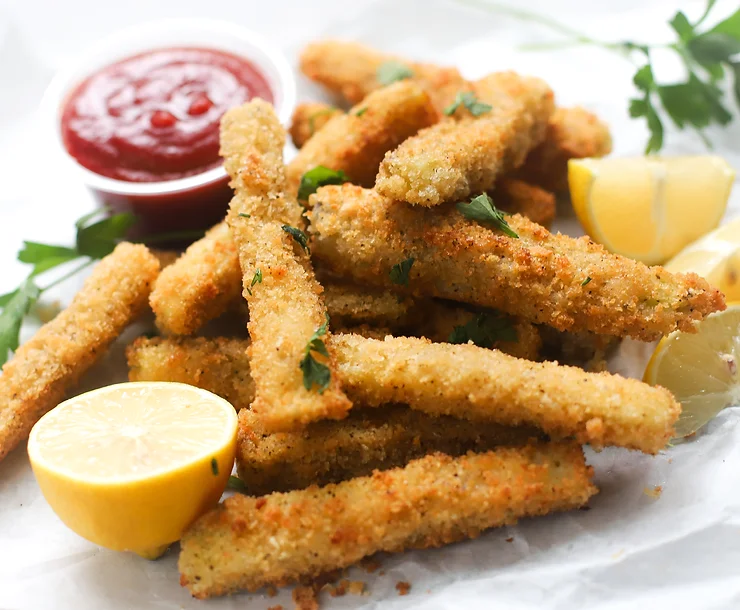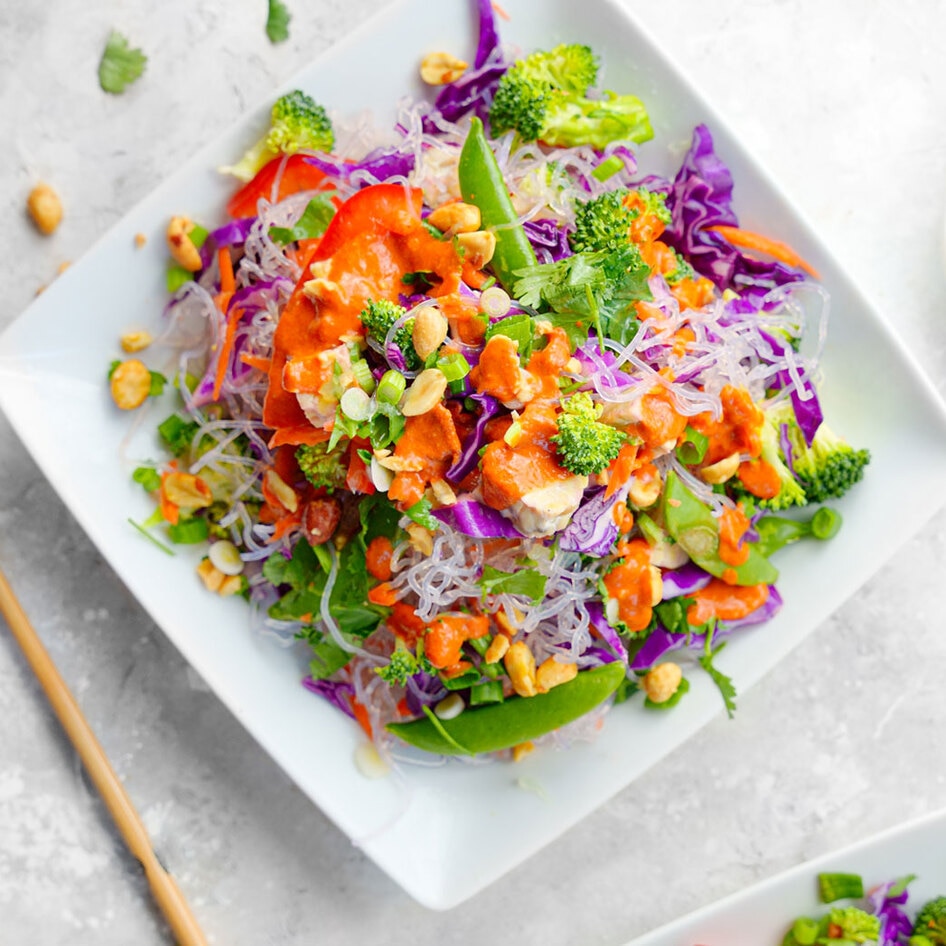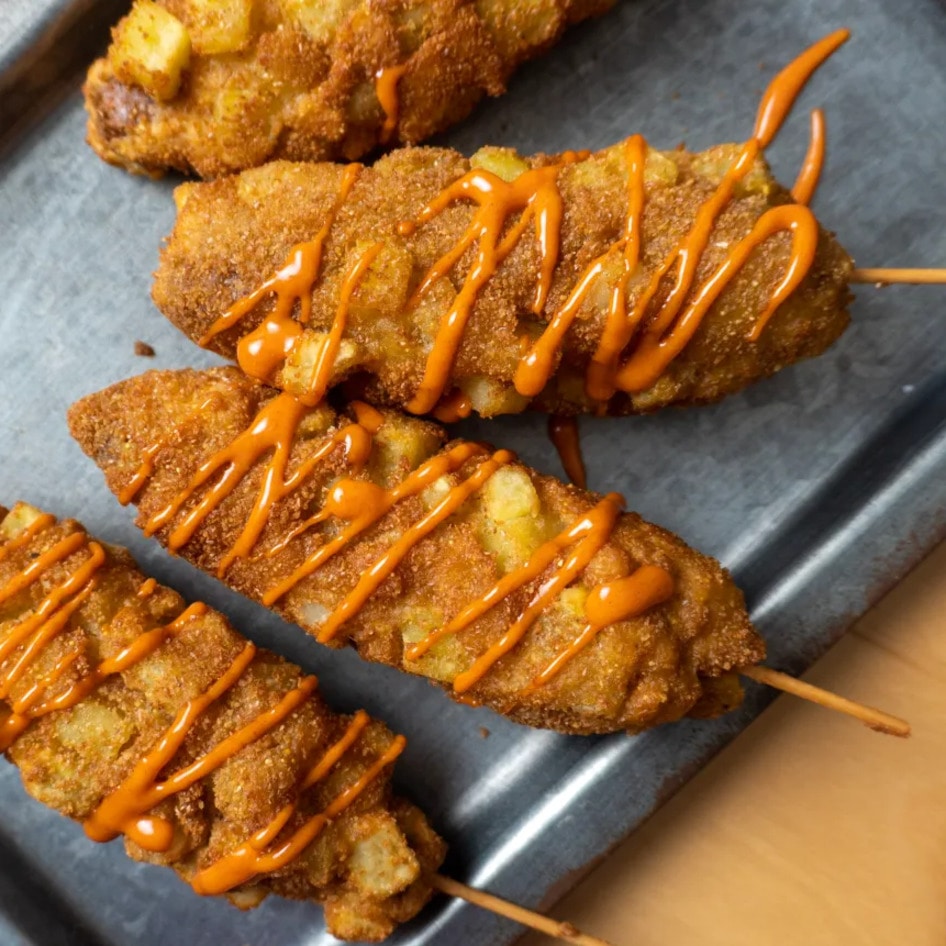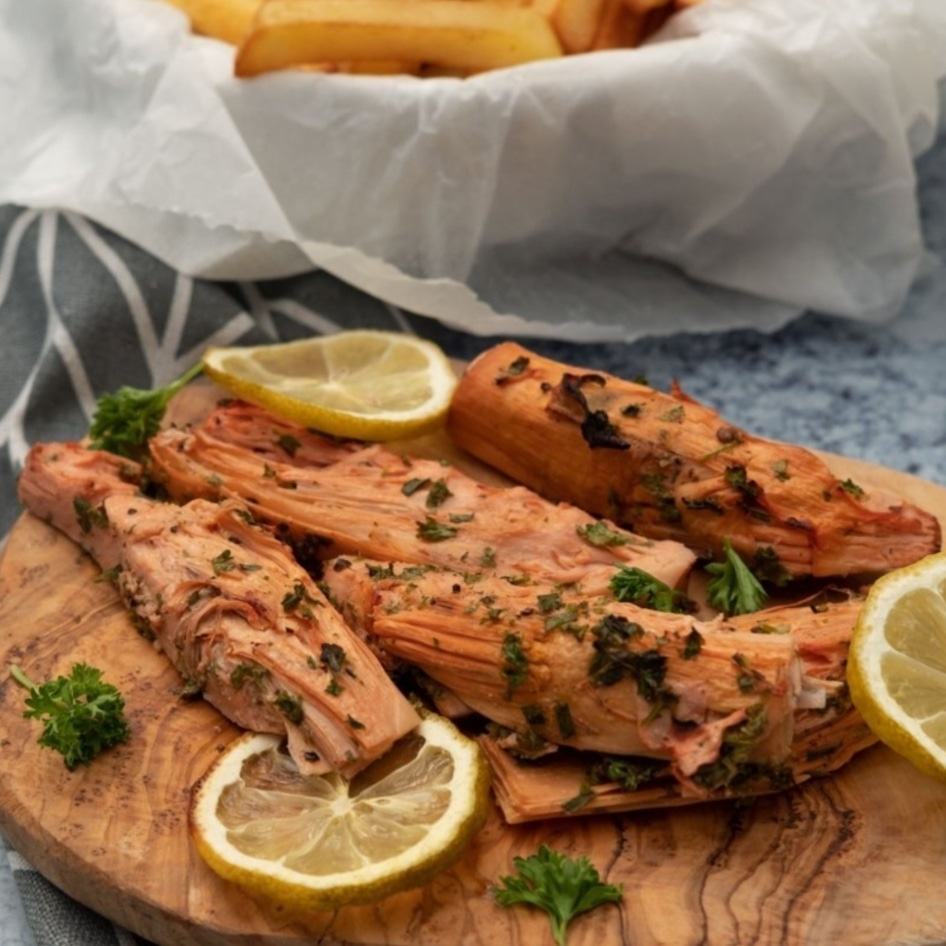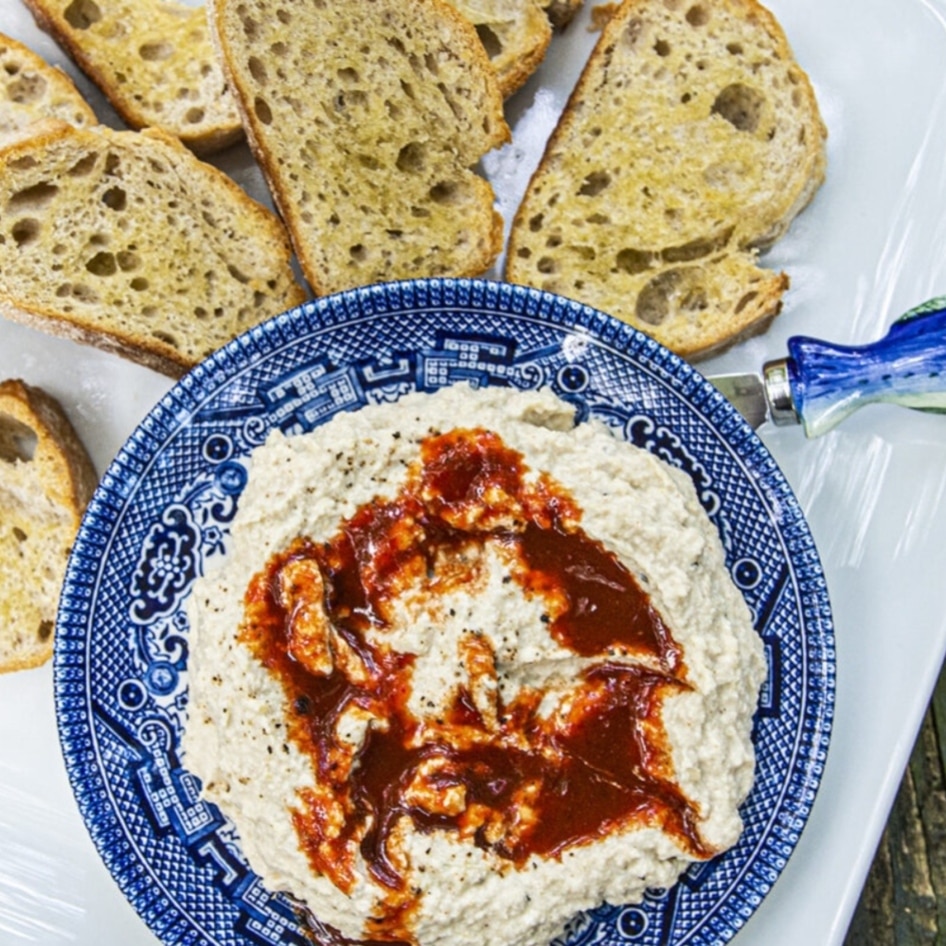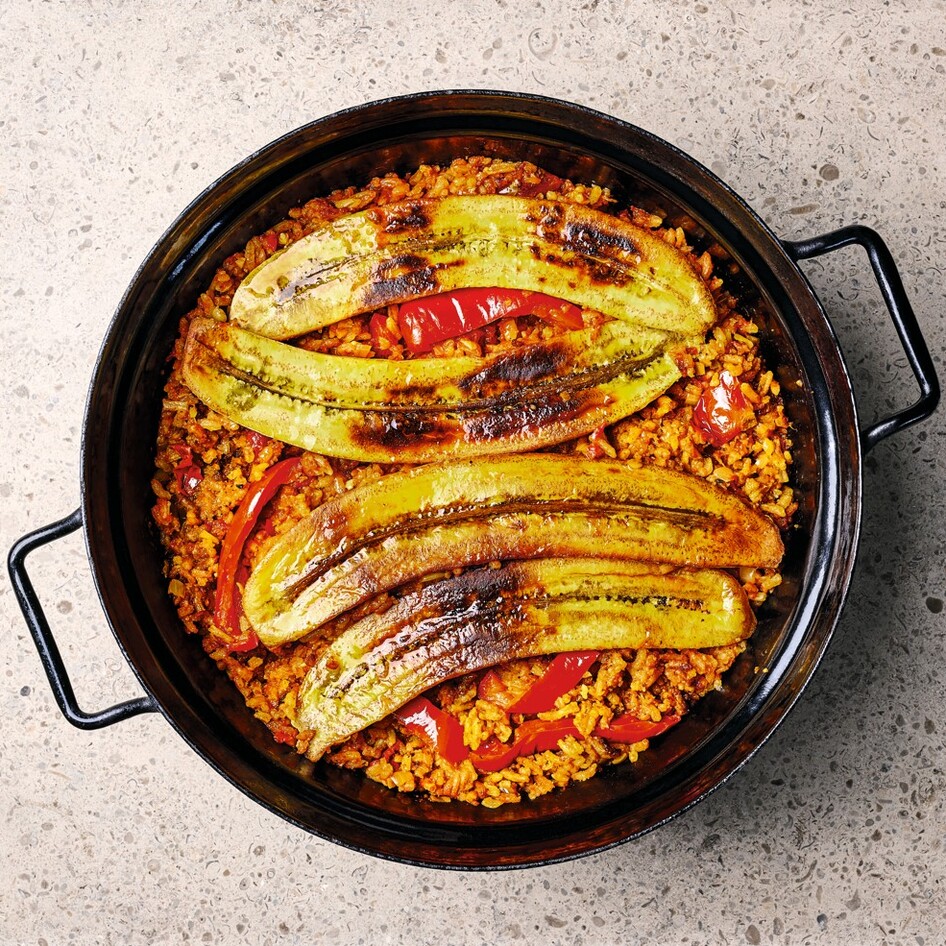In the early 1900s, American inventor Clarence Birdseye revolutionized food preservation with his quick-freezing method, setting the stage for today’s thriving frozen-food industry. Among its many creations is one of the nation’s favorite convenience foods: fish sticks.
Loved for their crispy coating and mild seafood flavor, Americans consumed around 56 million pounds of fish sticks in 2019 alone. However, these ultra-processed treats aren’t always the healthiest choice. The good news? You can enjoy the same delicious flavor with more nutritious, plant-based alternatives. Read on to learn how.
Are fish sticks healthy?
Fish sticks are a convenient frozen staple, loved by adults and kids alike all over the US. In the UK, where they’re usually known as fish fingers, they’re also a firm favorite. But while fish sticks do contain nutrients like protein and omega-3, as well as several vitamins and minerals, including selenium and vitamin D, they are far from perfect.
Fish sticks are an example of an ultra-processed food. Most contain fillers, additives, and preservatives, and they can be high in sodium, too. They are also usually fried before they are frozen, which increases their saturated fat content. While ultra-processed foods aren’t inherently bad, when eaten in excess, they can have negative health implications.
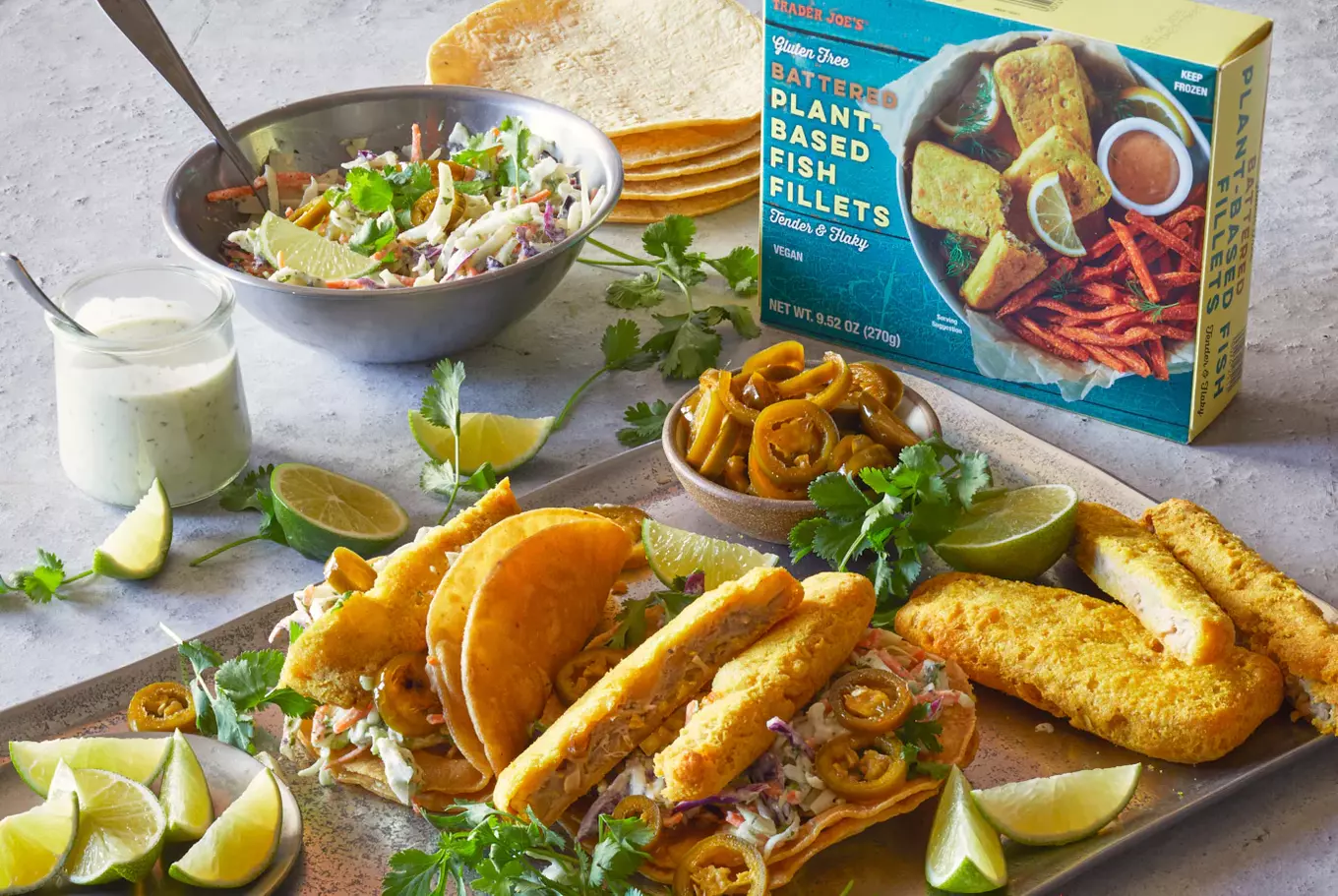 Trader Joe’s
Trader Joe’s
One recent study, for example, found that ultra-processed foods may increase the risk of osteoarthritis, as they increase the amount of fat stored in thigh muscles. “In an adult population at risk for but without knee or hip osteoarthritis, consuming ultra-processed foods is linked to increased fat within the thigh muscles,” researchers said.
Ultra-processed foods have also been linked with a higher risk of stroke and cognitive impairment, as well as cancer and heart disease.
Again, many experts say that, in moderation, the risks of ultra-processed foods are lower. In fact, some ultra-processed foods, like wholegrain bread, baked beans, or cereal, for example, are good sources of nutrients like fiber and protein. However, a growing body of research confirms that minimally processed whole foods, like beans, nuts, lentils, fruits, and vegetables, are best for our health.
 Getty
Getty
In the US, research suggests that as much as 60 percent of Americans’ daily calorie intake comes from ultra-processed foods. But if you’re looking to increase your intake of whole foods, the good news is you don’t have to miss out on your favorites, including fish sticks.
Vegan fish is more sustainable
Plant-based fish sticks are also a more sustainable option. Right now, according to the Marine Stewardship Council, overfishing is now three times higher than it was in 1970, while nearly 40 percent of fish stocks are overfished.
The impacts of overfishing are, in short, devastating and far-reaching. “Overfishing can affect biodiversity, habitats, and ecosystems that make vital contributions to the climate, clean air, water, and food,” the council states.
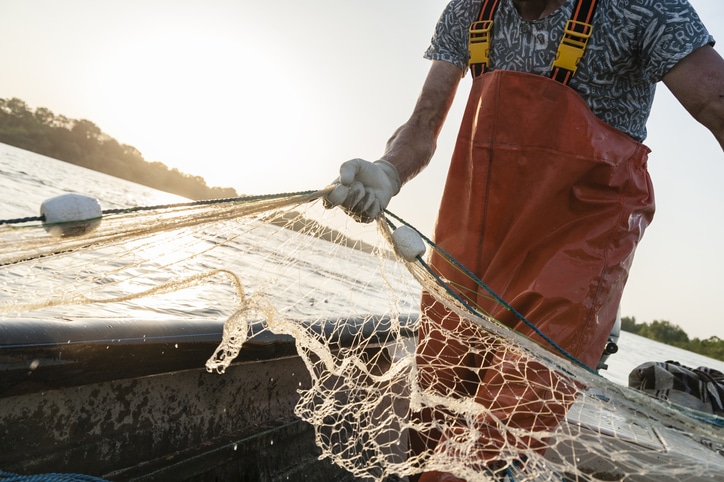 Getty
Getty
Overfishing most notably impacts fish targeted for food, but it also has rippling effects. “Biodiversity impacts can take place not only through overfishing of fish stocks targeted for food, but also through overfishing of species caught unintentionally. This can include endangered species such as some sharks, rays, and turtles,” the council continued.
Plants, however, are a much more environmentally friendly, sustainable way to enjoy any fishy cravings.
How to make fish sticks with plants
The recipes below require a little more time in the kitchen, but they deliver all the same delicious taste and texture as frozen fish sticks, just without the processed fish.
BECOME A VEGNEWS VIP: Get exclusive product deals, freebies, and perks galore!
1 Crispy Baked Tofu Fish Sticks With Tartar Sauce
Made with a combination of ingredients like extra-firm tofu, tamari, lemon juice, nori powder, and panko breadcrumbs, these super tasty vegan fish sticks are baked, not fried. For the best results, serve with a delicious homemade vegan tartar sauce, some fresh parsley, and a little extra nori powder (for that signature fishy taste).
Get the recipe
2 Beer Battered Vegan Fish Sticks
Cooking with whole ingredients doesn’t mean you have to give up on fried foods, if that’s what you’re craving. These tasty vegan fish sticks are made with hearts of palm and roasted seaweed, before they’re dipped into a beer batter and fried in a cast-iron skillet for the perfect weekend treat.
Get the recipe
3 Vegan Jackfruit Fish Sticks With Tartar Sauce
Jackfruit does an excellent job of replicating the tender texture of fish in this tasty recipe from The Veg Life, while Old Bay Seasoning helps to bring a little flavor of the sea to the mix. Again, they’re best served with a generous helping of homemade vegan tartar sauce.
Get the recipe
4 Vegan Hearts of Palm Fish Sticks
Again, hearts of palm combine with beer batter in this deliciously crispy version of a British pub staple—fish and chips, of course—from Jessica in the Kitchen. Nori and Old Bay Seasoning are essential for the fishy flavor. “If you’ve been looking for a vegan seafood recipe, this is going to become your go-to anytime you’ve got a craving for something fishy,” says recipe developer Jessica Hylton-Leckie.
Get the recipe
5 Fish Stick Style Fried Eggplant
Eggplant is the unexpected star of the show in this delicious fish stick recipe from Let’s Be Vegan. When battered and fried, it has the perfect texture for vegan fish, while kelp seasoning is responsible for that much-needed fishy flavor. “The coolest thing is that you can prepare them ahead of time and store them in a container in your freezer and cook them whenever you want,” says recipe developer Shantelle Gary.
Get the recipe
For more plant-based stories like this, read:
JUMP TO ... Latest News | Recipes | Guides | Health | Subscribe

